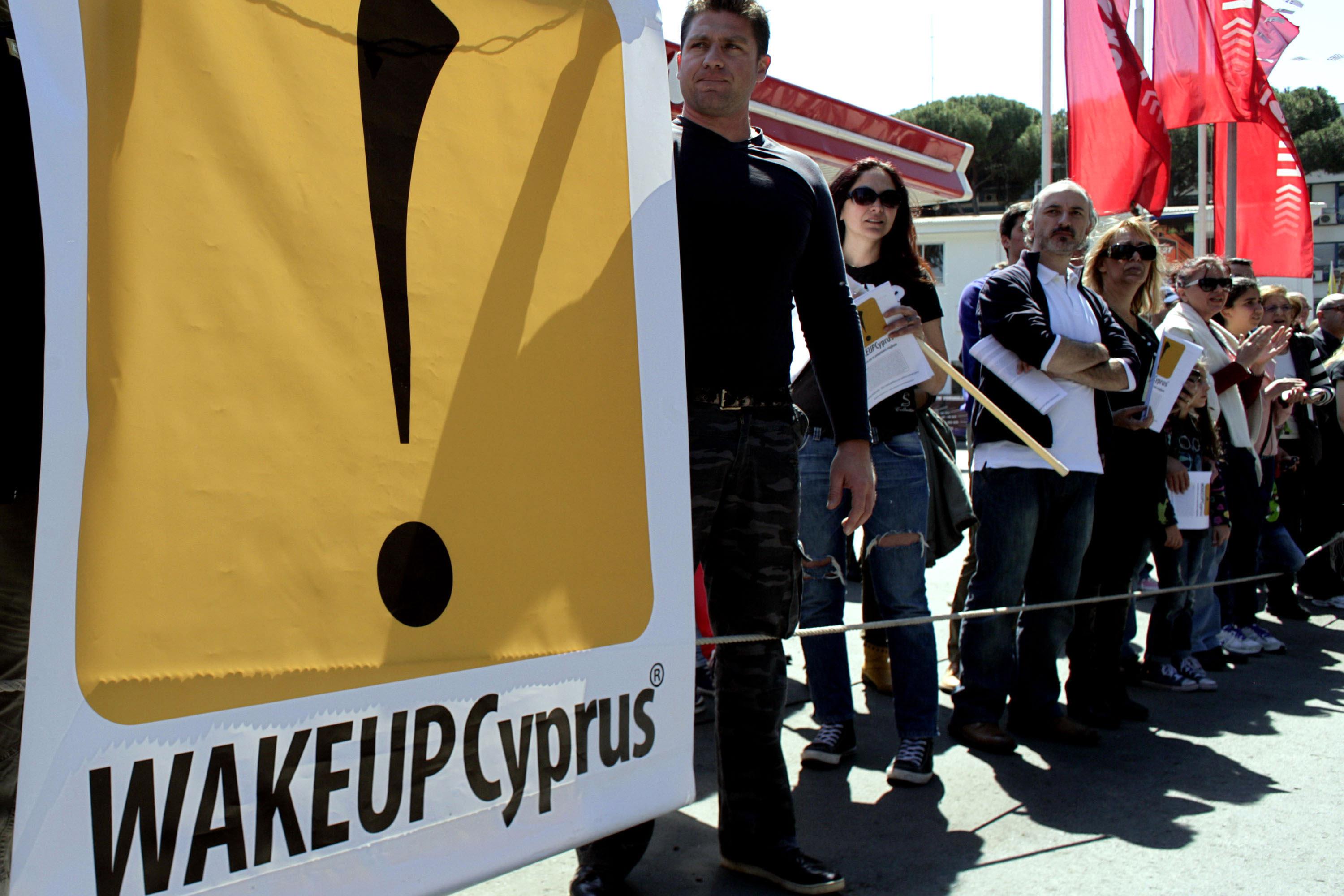They waited until the last possible day, but Cypriot authorities and the Troika (EU, ECB, and IMF) reached an agreement on what to do about Cyprus’ banking system. The long and short of it are that the interests of small depositors are going to be protected, large deposits in the country’s two biggest banks are going to get hammered, taxes are going to go up, and “temporary capital controls” of some kind are going to be installed to prevent the rest of Cyprus’ banks from collapsing.
Is Cyprus now saved? Absolutely not. Even if nothing goes wrong, you’re talking about the destruction of the island’s main high-value industry and a huge evaporation of local wealth. The ensuring depression is going to be sufficient to make problems for Cyprus’ remaining banks even if everything else goes fine.
How is this a better deal than what Cyprus was offered last weekend? It’s not. The big problem with the original plan was that too much of the burden fell on small insured deposits. That, however, was a Cypriot effort to protect the banking sector, not a Troika demand. A week of dithering resulted in small deposit protections that could have been obtained anyway, plus bailout terms that are if anything less generous, and also put the island through an economy-destroying weeklong blow to confidence.
Is the eurozone now doomed? No. We’ve just seen a weeklong experiment of the sort that would normally be barred by human research subject ethical guidelines, and it’s proved that “contagion” from one country to another can be contained. We’ve had a week for the news that Cypriot depositors would be taking haircuts to provoke bank runs in Lisbon and Barcelona and Milan, and it hasn’t happened. If anything, we’ve just seen an optimistic precedent that perhaps the terms of Ireland’s bailout—in which creditors’ interests were protected and everything falls on Irish taxpayers instead—can be renegotiated in a less onerous way.
Is the eurozone now saved? Again, no. Cyprus is geographically and economically peripheral to the European project. Italy is not. If the whole Cyprus episode hadn’t occurred, attention would have remained focused on the fact that the last Italian election led to a result in which no governing coalition could be formed. They’re set to vote again, but there’s no guarantee the results will be any different. Many countries have seen anti-establishment parties like Italy’s Five-Star Movement rise, but that’s typically resulted in “grand coalitions” where the main center-right and main center-left parties work together. Coalitions of that sort are currently governing the Netherlands, Finland, and Greece, and one may come to Germany later this year. But the Italian center-right and center-left won’t work together since the Italian center-left views the center-right (not necessarily wrongly) as not much more than a criminal conspiracy designed to advance the personal interests of Silvio Berlusconi.
Is Cyprus even still on the euro? Officially, of course, it is. But there’s an ontological puzzle here. If a euro in a Cypriot bank account can’t be traded at par for a euro in an Austrian bank account, then aren’t these really two different currencies with the same name? There are lots of currencies called “dollars” in the world. One can push this argument too far. The banks in the state of Michigan were closed for a long period during the lame-duck session between the Hoover and Roosevelt administrations. But the bank holiday did come to an end, and this goes down in American history as an example of a severe banking panic, not of an episode in which Michigan left the dollar.
